Firefighting is no easy task. The mental struggles that come with the job run as deep as the physical ones. Firefighters experience traumatic stress at high rates, which can weigh on someone day after day in this vital yet demanding job.
Those in the fire service experience much higher rates of mental health challenges than the general population, particularly in the areas of sleep disorders, depression, substance abuse, post-traumatic stress disorder, and what we’re bringing more awareness to today, suicidal ideation and action.
The International Association of Fire Fighters (IAFF) estimates that approximately half of all firefighters think about ending their life. In Minnesota, four to six active firefighters die from suicide each year.
In honor of World Suicide Prevention Day Sept. 10, we want to provide reminders about the heightened risks for firefighters, warning signs and how to help yourself or someone you know who may be at risk.
Individual experiences vary, but people who are considering suicide usually report feeling hopeless, worthless, agitated and/or overwhelmed, among other strong emotions. While the feelings the person is going through are intense, they usually are temporary – and treatable with professional help.
Who’s at risk for suicide?
Suicide is a global phenomenon that affects people in all regions of the world. In fact, it is one of the leading causes of death worldwide, according to the World Health Organization. Each year, more than 700,000 people die by suicide – that’s about one in every 100 deaths. And, for each suicide, there are more than 20 suicide attempts.
Situational or chronic mental health disorders are often linked to a person’s suicidal thoughts or attempts. Globally, WHO estimates more than 264 million people of all ages have depression, which also is the leading cause of disability worldwide and a disorder that can lead to suicide. However, not all people with mental illness contemplate suicide. People who do not have a history of mental illness also might consider and attempt suicide.
Risk factors and warning signs
Factors that could put a person at risk for suicide include:
- Previous suicide attempt(s)
- Mental illness, particularly depression
- Alcohol or substance use disorder
- Stress and crises, such as financial or legal problems
- Chronic pain or physical illness
- Severe emotional distress, such as from war, conflict, disaster, physical or sexual violence, abuse, loss of a loved one
- Social isolation
- Discrimination, bullying, especially due to gender identity or sexual orientation
- Family history
Most people who die by suicide exhibit verbal and behavioral warning signs before doing so. These may include: talking about wanting to die or threatening to kill oneself, feeling trapped or hopeless or having no reason to live; looking for ways to kill oneself; increasing use of alcohol or drugs; showing rage or talking about seeking revenge; giving away valued possessions, or writing a will; withdrawing from loved ones; sleeping too much or too little; and experiencing extreme mood swings.
Helping someone who’s at risk
Important: If you fear a person is in immediate danger of harming themselves, do not leave them alone. Reach out for professional help – contact emergency services, a crisis line, or a health care provider.
If you are concerned a loved one is considering suicide, discreetly let them know of your concern and start a conversation to encourage them to seek professional help from a clinician or a local prevention resource or support group. Listen to what they say, and offer to help them find a resource and/or to go with them as support. From there, keep in touch with them and ask how they’re doing. If need be, reiterate your concern and again encourage them to seek professional help.
Helping yourself cope
Losing someone you care about to suicide can be – in a word – devastating. It’s common to feel overwhelmed, shocked and grief-stricken. It’s also common to feel a host of other emotions, including anger, confusion, guilt, shame and relief. The reality is, there is no right or wrong way to feel because everyone – whoever or wherever they are – experiences loss differently. As hard as it is, in time and with support, you can begin to heal and feel better.
Try to remember you are not alone, and you do not have to go through this alone. Ask for support and accept help from trusted friends and family. Peer supporters who have experienced similar tragedy and stress are also available to listen and provide confidential support.
Especially if you have been unable to complete day-to-day activities, are struggling with difficult emotions, or have felt emotionally numb for several weeks, seek professional help.
We’re here for you.
Confidential help is available over the phone or online, anytime for any firefighter and/or their family through the free and confidential MnFIRE Assistance Program (MAP). No call or inquiry is too small. If something happened on the job or in your life, or if you’re just feeling stressed, we’re here to help.
For more details or for help, call 888-784-6634 or visit https://mnfireinitiative.com/hhap/.
Repurposed from MnFIRE Assistance Program partner, Optum

